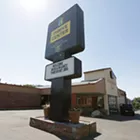But the old Spokane was still on display, as media reports of visitors often devolved into variations of, "So, how much do you love Spokane?" The new Spokane should be self-confident enough to know it's a great place without fishing for compliments. Still, recognition has been a long time coming, so it's hard to criticize the outpouring of affirmation seeking.
Finally, we got to bask in the glow of national attention, as Seattle and Portland have for years, and as even Boise and Missoula have as they've been named among the most livable cities by national media. We've been a wallflower city for some time now, so it's nice to get asked to dance.
& lt;span class= & quot;dropcap & quot; & N & lt;/span & ot wanting to miss the chance to capitalize on the momentum, Spokane's business leaders have reorganized their marketing efforts, combining the Spokane Area Chamber of Commerce and the Economic Development Council into one entity, Greater Spokane Incorporated. It seems like a good idea, and I wish them well, but I've always been a bit skeptical of such groups.
What happens when the wishes of the business community don't mesh with the needs of average citizens? Why was it that back in the 1990s Spokane had developed a reputation as a great place to open a call center?
(Translation: Will work for peanuts.) Why did the Convention Center expansion get the big civic boost while the light rail plan was ignored to death?
I've also been suspicious that our business establishment has looked more to the Midwest, to places like Detroit, than to the West Coast and places like Silicon Valley. Detroit's buttoned-down, 9-to-5 world is becoming more archaic, as the creative types who drive the cutting edge of the American economy usually don't wear suits and commute by bike. (And we all know how Ford is doing as compared to Apple.)
& lt;span class= & quot;dropcap & quot; & A & lt;/span & ny discussion of economic development quickly comes up against a conundrum: Is it driven more by business, or is it driven more by people? It's a chicken-and-egg thing, and the answer dictates your strategy. It seems intuitive that economic development is driven by business -- that's where the jobs come from. But I've come to believe people matter most -- where the smart, creative ones go, business will follow.
The dream of too many economic development entities is that if only the next Microsoft would drop a corporate campus here, we'd be set. But the dream should be: If only the next Bill Gates were born here, got a great education here, was encouraged to take risks here and started the next Microsoft here, then we'd be set. Or, to put it another way, did Austin, Texas, become the coolest city in the Midwest when lots of high-tech companies started moving in, or did it start when Willie Nelson and other hipster-artists started moving there?
I used to think a better way to spend our economic development dollars would be to go to college campuses and recruit young, hip, smart, creative people and pay them to move here. Hopefully a lot of them would stay. It's a variation on the way the West was settled, with pamphlets blanketing Eastern cities offering the chance at a new life. And for me, the idea offers a bit of an antidote to the Spokane I grew up in, which was characterized by a massive brain drain. I would guess that at least half of the people I graduated from high school with took their talents and devoted them to other cities.
Would they have stayed if Spokane had better jobs? If Spokane was more exciting? Both were factors, but if I had to pick, I'd say we need to orient our economic development efforts around making this a place people enjoy -- attracting them to live here, and keeping them once they come.
& lt;span class= & quot;dropcap & quot; & T & lt;/span & his is a good conversation to have, as I think we are on the verge of being "discovered." All it takes is a feature in Newsweek about how livable our region is, or a cover story in Sunset magazine. This is the script that other cities have followed, even Coeur d'Alene and Sandpoint.
If we invite people to come, we better be ready when they arrive. When you throw a party, you clean your house up first, and that's where government comes in. Local governments should focus on basics, like fielding a police department that will not only solve a murder case, but also pursue petty criminals who create an aura of lawlessness. Governments should continue to create rules about protecting the aquifer and Spokane River. Of course we need to get more kids to earn college degrees. Finally, government should focus on making sound decisions about growth. Other cities have been discovered, and too many have been crushed under the weight of bad decisions.
As for our business community, I see a lot of signs that they are learning from the mistakes of the past. In their recent report, Spokane Vitals, Greater Spokane compares our creative power with other cities'. When they measure the number of patents we generate, Spokane fares poorly, with only about 15 patents for every 100,000 people in 2005. Inventive Boise, by comparison, clocks in at 325.
We still have work to do, and admitting it is the way to a new, better Spokane.
Comments? Share them with
us at totheeditor@inlander.com















